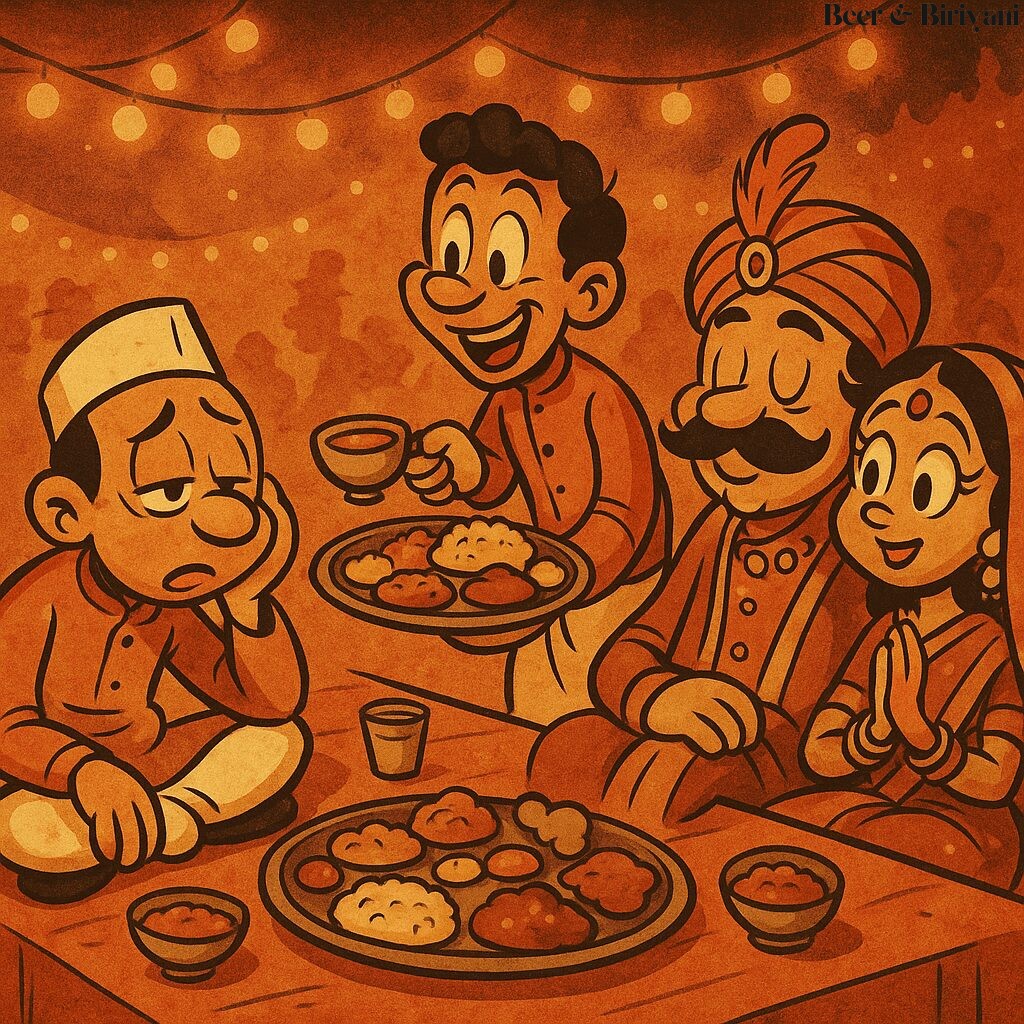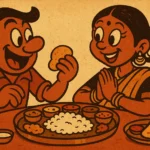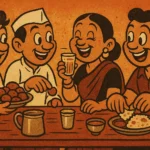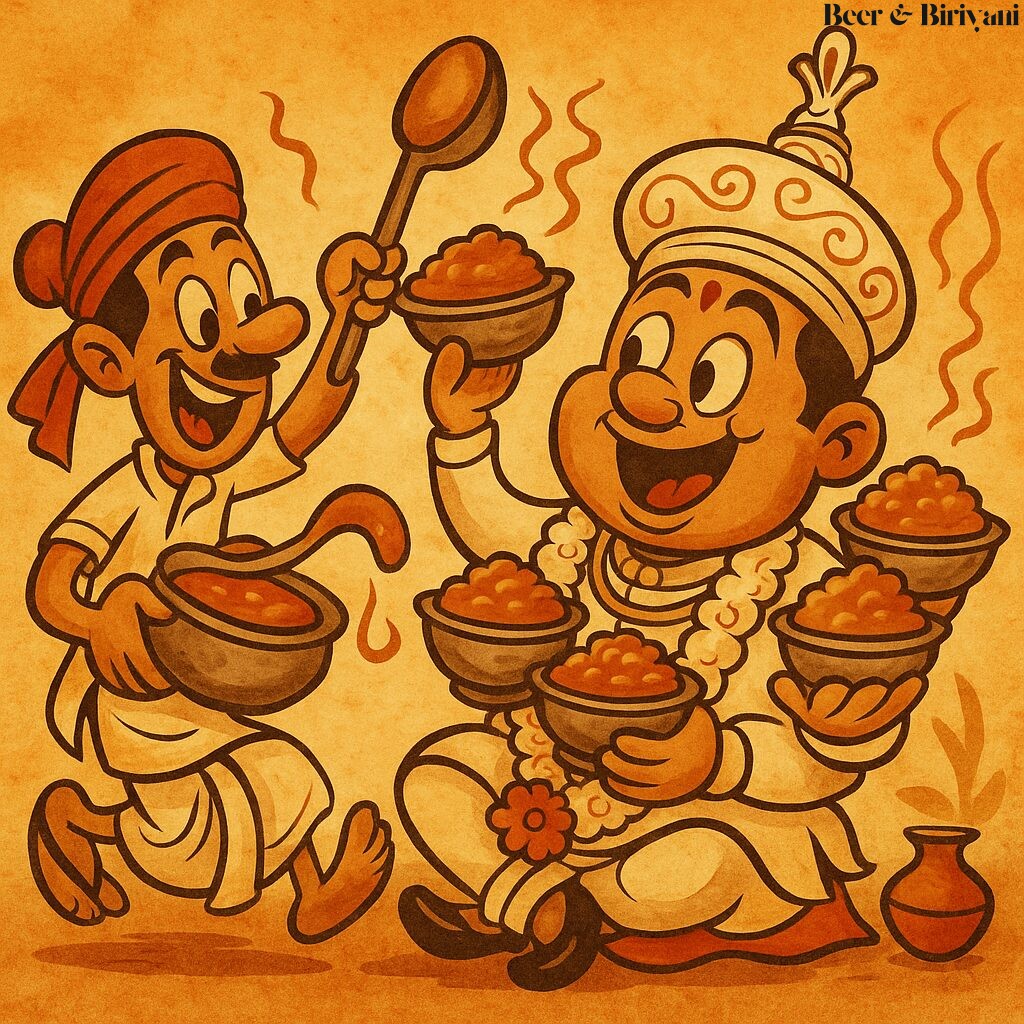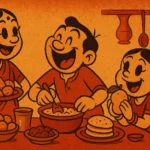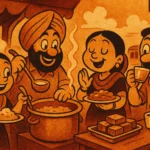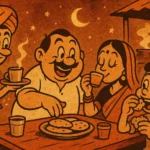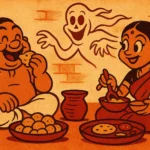There’s something quietly surreal about standing in a kurta that’s come undone at the collar, barefoot because your mojaris gave up two hours ago, while someone hands you a heaping thali of steaming dal makhani and paneer at 1:07 AM. The wedding DJ is still going strong. An uncle is loudly insisting on another round of “Tunak Tunak Tun.” You, meanwhile, are navigating hot phulkas with sleepy eyes and a heart full of secondhand love. Welcome to the midnight thali—India’s unofficial post-ceremony religion.
Back when I was growing up in Mumbai, weddings meant one thing: food. Okay, two things—awkward family reunions and food. But as a kid, it was always the promise of the post-midnight meal that felt the most electric. You’d stay awake through rituals you didn’t understand, mildly terrorized by aunties pulling your cheeks, because you knew what was coming: the giant plates, the clanking ladles, the steaming buffet line that opened just as your body was ready to give up.
Why So Late?
Indian weddings operate on their own kind of physics—one where time bends around muhurat timings, where a 7 PM baraat arrives at 9:45, and where dinner is served when most other countries are brushing their teeth. But here’s the thing: it works. You’re too excited (or too exhausted) to think rationally, and then someone hands you a plate with three curries, two kinds of rice, raita, achar, papad, and a still-warm gulab jamun. You surrender. You eat like you’ve never eaten before.
The Emotional Geometry of the Buffet
There’s a choreography to how you build your plate. You start with rice because it’s structurally sound. Then comes dal—either tadka or makhani, depending on the regional leanings of the host family. Add paneer, a token vegetable (hello, bhindi do pyaza), and something deep-fried just to prove you’re festive. If you’re lucky, there’s a live dosa counter or chaat station still going strong, even as the staff looks increasingly ready to strike.
Don’t forget dessert. You only think you’re full until you see hot jalebis being spiral-summoned from a wok of boiling oil, or ice cream melting into a puddle beside moong dal halwa. You tell yourself it’s okay—it’s past midnight, calories don’t count. You lie to yourself. It’s fine. Everyone does.
Sleepy Eyes, Hungry Hearts
By the time you sit down with your loaded thali, the world has shifted. The lights are dimmer. The music has transitioned into slow, romantic numbers. Kids are passed out on chairs. Aunties are clutching shawls like they’re heirlooms. But the food? The food is still hot. Still generous. Still capable of making you forget the hour.
I once saw a groom—turban slightly askew, lipstick smudge still visible on his cheek—sneak in a second plate of rice and aloo dum at 2:15 AM. He looked happier than he did during the jaimala. Honestly, I got it. After days of rituals and relatives, the thali was his real moment of peace. His first uninterrupted bite of the day. A communion not with tradition, but with his appetite.
More Than a Meal
The midnight thali isn’t just about food. It’s about rhythm. It’s a quiet promise: no matter how chaotic the ceremonies get, how delayed the timelines, how crowded the mandap—it all ends with something comforting. Something familiar. Something delicious. It’s the communal exhale after the big moment. The edible epilogue.
Even abroad, I’ve tried to keep this spirit alive. At my cousin’s wedding in Dallas, dinner was scheduled for 8 PM. I respectfully rebelled. At 12:30 AM, I reheated a plate of leftover rajma chawal, poured myself a glass of buttermilk, and ate alone in the kitchen, in my kurta pajama, barefoot and utterly content. A small, quiet homage to a very big, noisy tradition.
The Aftertaste of Nostalgia
The next morning, people talk about the outfits. The ceremony. The speeches. But what stays with you—the real highlight—is the memory of sitting with cousins you haven’t seen in years, balancing overflowing thalis on your knees, whispering jokes, licking chutney off your fingers. The warmth of the food. The chill in the air. The feeling that something big just ended, and something even better (dessert) was about to begin.
So yes, the midnight thali is strange. It’s too late. Too much. Too spicy for sleep. But it’s also perfect. It’s what weddings taste like. And if you ever find yourself yawning through pheras, just hold on. A ladle of dal makhani is being stirred somewhere. And it’s waiting for you at exactly 1:04 AM.
Born in Mumbai, now stir-frying feelings in Texas. Writes about food, memory, and the messy magic in between — mostly to stay hungry, sometimes just to stay sane.

